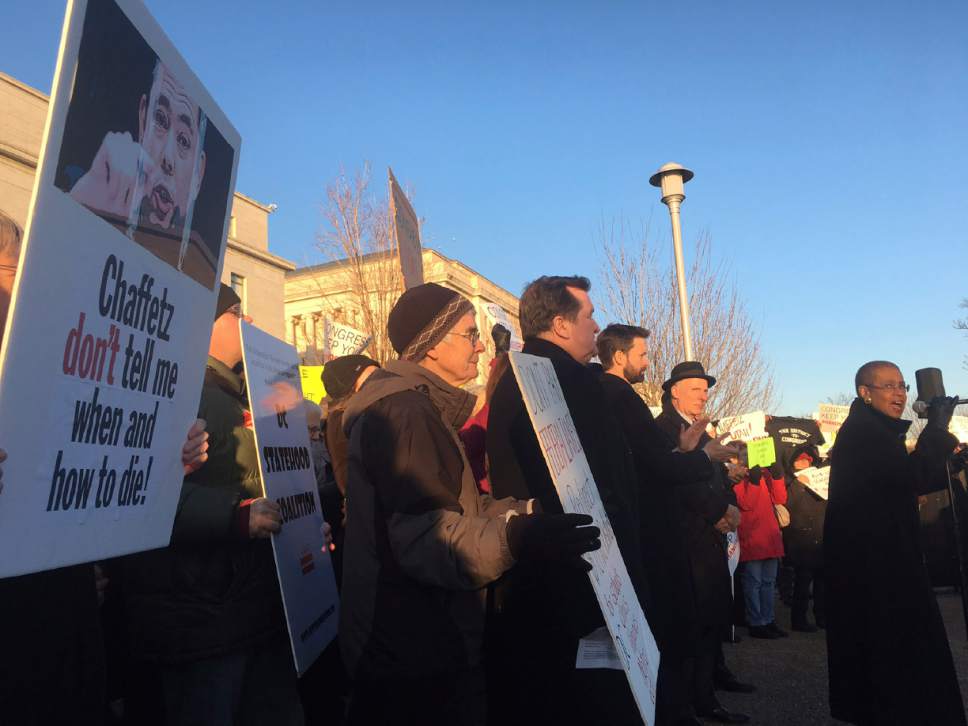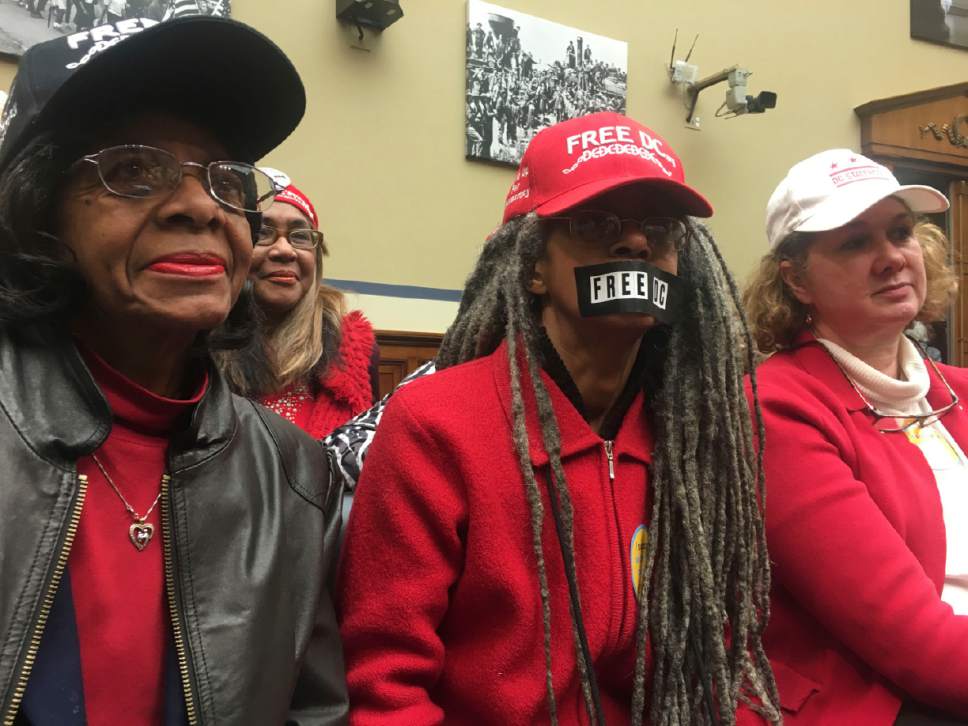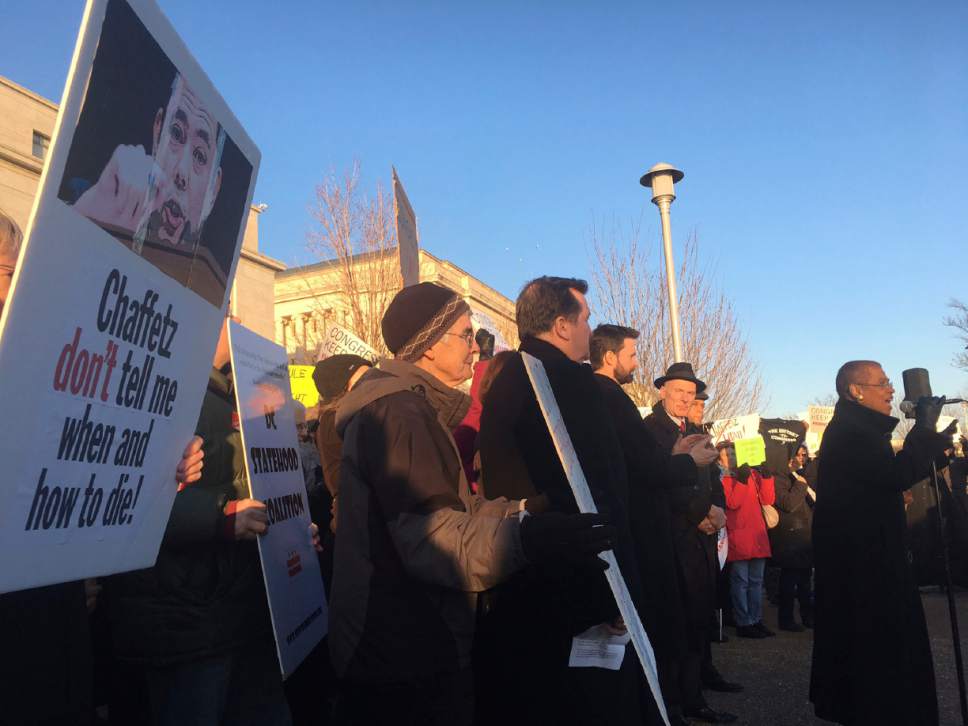This is an archived article that was published on sltrib.com in 2017, and information in the article may be outdated. It is provided only for personal research purposes and may not be reprinted.
Washington • Against an outcry of residents and locally elected officials of the nation's capital, a House committee, led by Rep. Jason Chaffetz of Utah, began the first steps to overturn a District of Columbia law to legalize assisted suicide.
While District residents called for local control to pass their own laws, Chaffetz and fellow Republicans charged back, saying that the Constitution gave Congress broad powers over the federal city and that Washington should serve as an example to the rest of the country.
Chaffetz, a Republican, is chairman of the House Oversight and Government Reform Committee that passed a resolution disapproving the District's law. He said that allowing assisted suicide was antithetical to America's moral values and that he saw danger in approving any type of suicide.
"Our country should never facilitate, encourage or tacitly accept measures that prematurely end the lives of its people," Chaffetz said, noting that the law doesn't make clear what a terminal disease is and that it could "create a marketplace for death."
It would be a rare move for Congress to overrule a District law — it's been 26 years since it last did — and it would be unlikely that the House and Senate can do so before Friday's statutory deadline. No House floor vote has been scheduled, and the Senate has yet to take up a companion bill.
Still, outside the hearing, in a nearby park, dozens of District residents protested the House committee's move, asking Congress to keep its hands off the city and its 670,000 residents who have no voting representative in the federal government.
D.C. Councilman Robert White said the city is "tired of Congress playing politics with our laws and our city."
"Jason Chaffetz does not live in our neighborhood," White said at the rally. "His kids do not go to our schools. He is not a D.C. resident. So he has no say in our laws."
Chaffetz has come under fire recently in Utah for his claim that a rowdy and hostile crowd at his town-hall meeting last week was infiltrated by out-of-state professional agitators — an unsubstantiated charge that infuriated many of the residents attending.
Eleanor Holmes Norton, the District's non-voting House delegate, said Monday's hearing was an insult to the city's residents because it "shows contempt for democracy and flies in the face of what we always thought to be the bedrock of Republican principles" of local control and local governance.
Norton said the GOP-led Congress doesn't have to agree with legalizing assisted suicide, as six states have now done, but that the city should get to rule itself without meddling from members of Congress who don't live there.
"We are asking you to agree with American doctrine that local laws are for local residents," Norton said.
Republicans, though, said they shouldn't stand by when the city acts against the country's principles.
"My personal opinion is: Only God gets to decide," said Rep. Paul Mitchell of Michigan.
Rep. Steve Russell of Oklahoma said "D.C. is America's city. It represents the entire country, not just its residents." He noted Nazi-run Germany backed legalized suicide.
"We have to stand up against a system of expanding suicide pacts," he said.
The last time Congress overturned a D.C. law was 1991, when it jettisoned local efforts to allow taller buildings in the city. Congress last tossed out a District law affecting social policy in 1981 when the House and Senate voted, and President Ronald Reagan signed, a resolution disapproving a law erasing a felony charge under the city's sodomy law.
Only one Republican, Rep. Darrell Issa of California, the former chairman of the Oversight Committee, voted against the GOP effort to dismantle the D.C. law.
Issa said he doesn't support D.C.'s law, nor California's permitting of assisted suicide, but that it would exceed Congress' authority to rescind a locally passed law that doesn't go against "home rule" that the federal government has granted the city.
"There's no question here today that the District of Columbia made a decision, it was not the first, and as far as I can tell it is not in conflict of any federal law," Issa said, adding, "I do not believe that we have reached the required level of federal action to support repealing this."
The vote to approve the resolution — which would disapprove the D.C. law — was initially tied but Chaffetz kept the voting open until several Republican returned from the House floor to cast votes to overturn the bill.
The vote, largely on party lines, passed 22-14.







